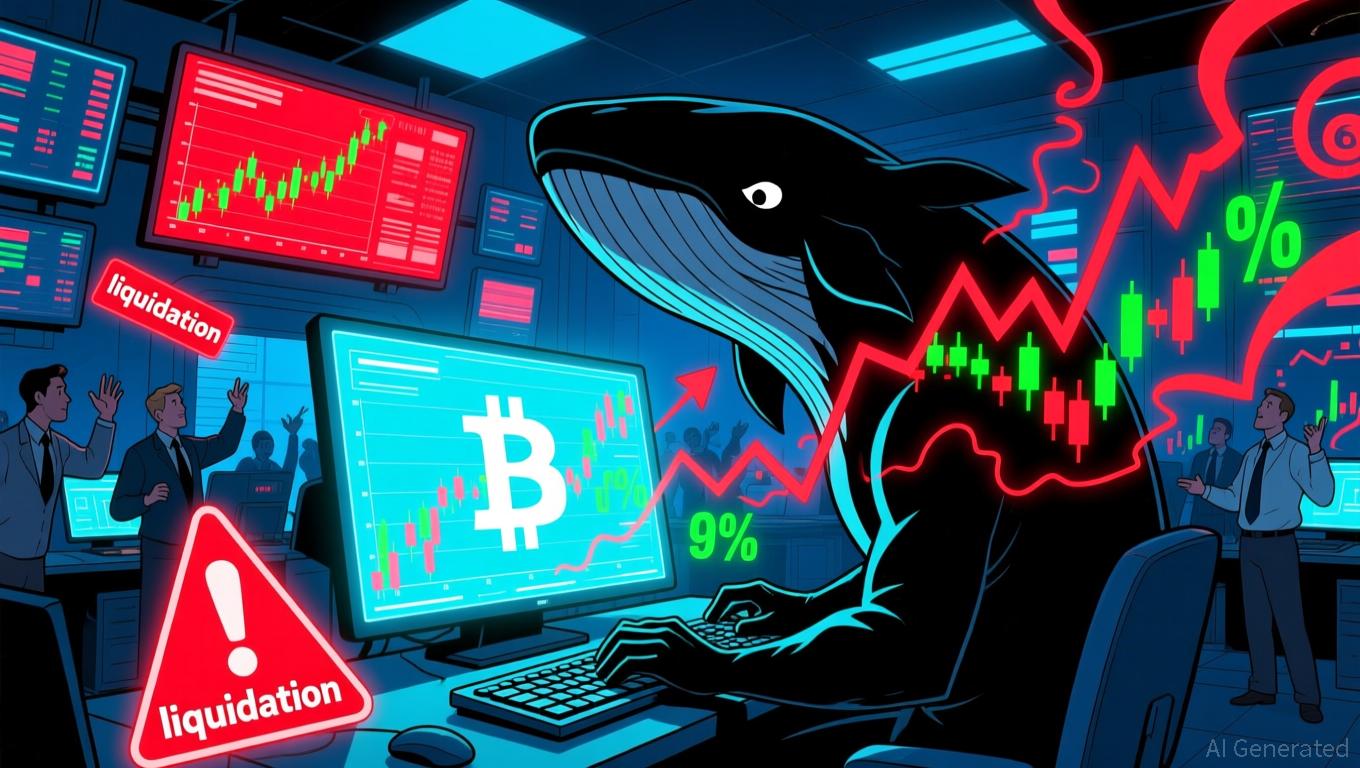Navigating Cryptocurrency Frauds: The COAI Token Fiasco and the Importance of Investor Research
- COAI token's 88% collapse in 2025 exposed DeFi vulnerabilities, causing $116.8M investor losses through algorithmic stablecoin flaws and opaque governance. - Centralized token distribution (87.9% in ten wallets) and regulatory ambiguities like the U.S. CLARITY Act enabled coordinated manipulation and liquidity crises. - Global authorities imposed sanctions and froze assets, but jurisdictional gaps persist as Southeast Asia remains a crypto scam hub with $10B annual frauds. - Experts urge smart contract a
Exploiting DeFi's Weaknesses
The COAI token fraud capitalized on inherent flaws within DeFi systems. One major warning sign was
Algorithmic stablecoins, which are fundamental to many DeFi initiatives, were also a contributing factor. These digital assets depend on intricate systems to keep their value stable, but

Regulatory Responses and Transnational Challenges
Authorities have started to take action, but efforts remain inconsistent. The U.S. and U.K. have sanctioned individuals and organizations involved in the scheme, while
Southeast Asia has become a major center for crypto-related scams,
Investor Due Diligence: A Path Forward
The COAI incident is a powerful lesson for investors about the necessity of active risk assessment.
Clear regulations are just as vital.
Conclusion
The COAI token scandal stands as a warning for the DeFi sector. Although blockchain technology holds great promise, its dangers are heightened by the lack of effective protections. Investors must practice thorough due diligence, and regulators must address legal loopholes and uphold accountability. The future stability of DeFi will depend on how well innovation is balanced with robust safeguards as the industry develops.
Disclaimer: The content of this article solely reflects the author's opinion and does not represent the platform in any capacity. This article is not intended to serve as a reference for making investment decisions.
You may also like
Bitcoin News Update: Major Whale Places $87 Million 3x Leveraged Bet Opposing BTC Surge Amid Divided Market
- A Hyperliquid whale opened a $87.58M 3x BTC short, contrasting with bullish market trends and other traders' strategies. - Another 20x $131M short faces liquidation risk if BTC surpasses $111,770, while $343.89M in 24-hour liquidations highlight short-position vulnerability. - Technical indicators (RSI 66, 15/1 buy/sell signals) and institutional BTC purchases support upward momentum despite liquidity risks on Hyperliquid. - Diverging whale strategies and macro factors like Fed policy underscore crypto's

Ethereum News Update: Major Institutions View Ethereum as a Key Asset, Outpacing ETF Investments
- 68 publicly traded firms now hold 12.7 million ETH, surpassing all Ethereum spot ETFs' 11.3 million holdings as of July 2024. - Firms like Coinbase and Gemini lead corporate accumulation, while banks like Fidelity expand crypto custody services for institutional clients. - Analysts cite regulatory clarity and improved risk frameworks as drivers, with 72% of institutional investors boosting crypto allocations in 2024. - Critics warn of market manipulation risks as corporate holdings now control 54% of ins
Breet's Enhancement Addresses Africa's Cryptocurrency Instability and Delayed Transactions
- Breet 3.0 Pro Max upgrades Africa's OTC crypto platform with USD wallets, instant transfers, and flat fees to combat volatility and slow settlements. - Key features include stable dollar holdings, peer-to-peer transfers bypassing banks , and automated issue resolution to reduce transaction friction. - Business tools now offer multi-currency templates, VIP tiers for high-volume traders, and security dashboards tracking account activity. - The update addresses Africa's crypto challenges by stabilizing purc

DeFi's Automation Shortfall Addressed: Orbs Introduces dSLTP to Achieve CeFi-Grade Risk Control
- Orbs launches dSLTP, a decentralized stop-loss/take-profit protocol for DEXs, bridging CeFi automation with DeFi. - The protocol automates risk management via on-chain orders, reducing real-time monitoring needs during volatility. - Built on Orbs' Layer-3 infrastructure, it enhances DEX functionality with CeFi-grade tools while maintaining decentralization. - This innovation addresses DeFi's automation gap, potentially driving DEX adoption and institutional-grade on-chain trading.
